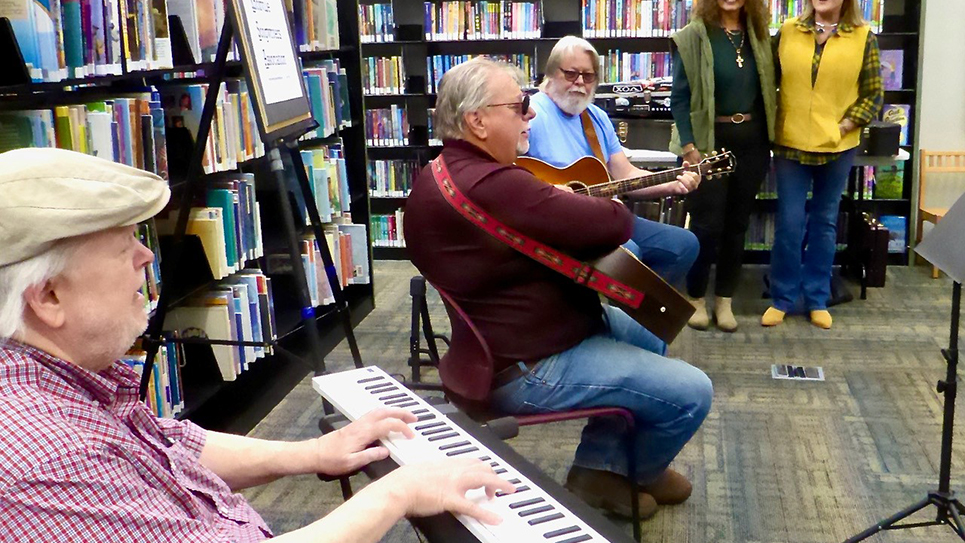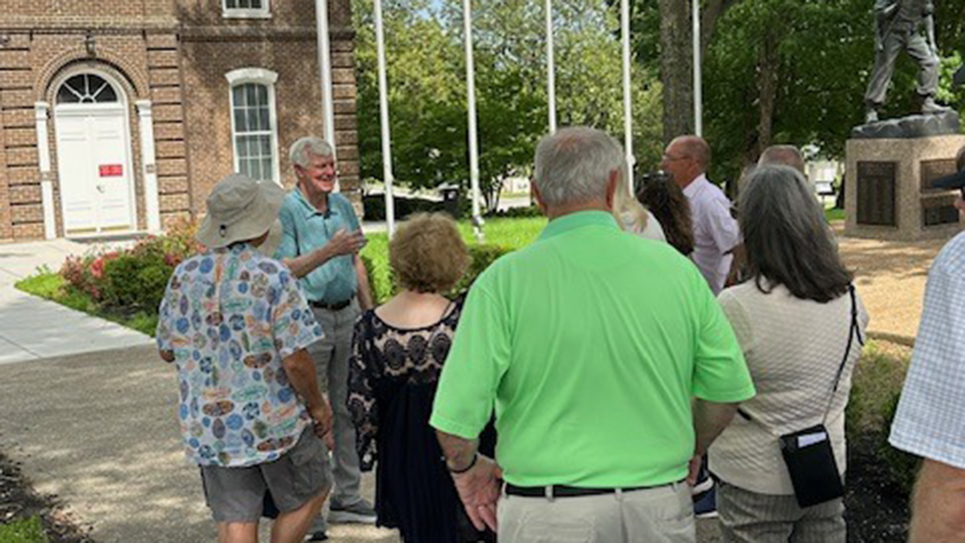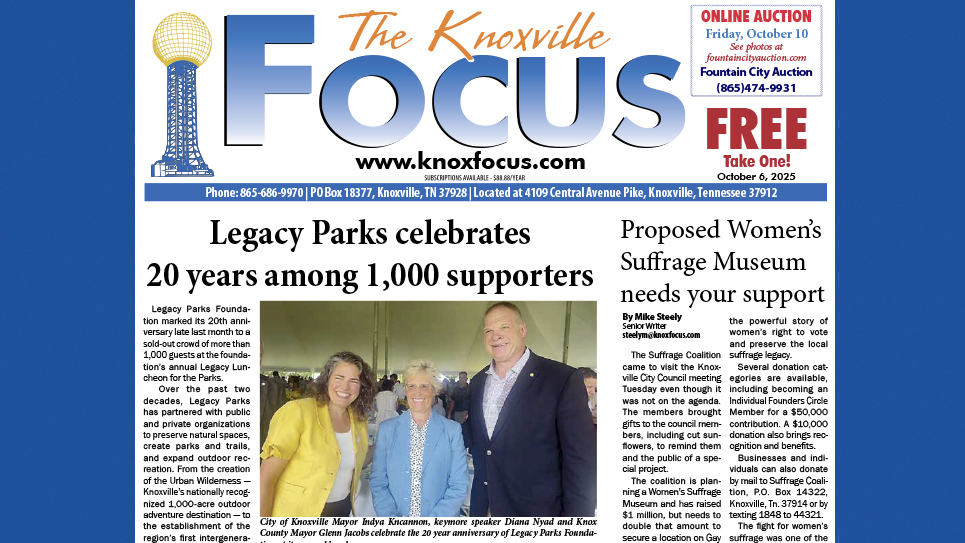Christmas came early for me this year, though I’m not sure why. Some years I wait and wait and wonder if I’ll ever get the Christmas spirit. But, it eventually comes, though sometimes prompted by the Christmas movies Becky and I love and watch each year.
I’ve mentioned that I used to worry each week about where my Focus essay would come from or fret about whether a story idea would arrive before my publisher’s deadline arrives. Perhaps the “coming” of the Advent season, the arrival my Christmas spirit and waiting for a story to happen are all somewhat related. Perhaps they are all dependent upon living in the present moment.
You’ve heard it said that “Yesterday is history, tomorrow is a mystery, today is a gift of God, which is why we call it the present.” I’ll admit that I do fret about the future as I think about our country and my children/grandchildren. However, all I can do is my best in word and deed, and let it go. I have also learned to forgive myself because I accept the premise that my Master has already forgiven me. So I am left with a focus on the present moment which to me seems the most important.
I love the Holiday Season, but I often hear people complain that the Season is stressful for them. Perhaps the stress is in part due to their expectations of themselves or the expectations of others. After all the perfect Christmas gift or gathering is elusive at best. Focusing on the “reason for the season” and being together with family and friends are by far the most important perspectives.
The Holidays can be a lonely time for some who feel isolated, and to me this seems like a bigger issue than our seasonal stresses. Recently, a friend told me about a young father who committed suicide. He was depressed by his wife’s tragic death from breast cancer and apparently felt so hopeless he couldn’t continue. Everyone has felt emotionally down at times, but few of us have felt pain that would cause us to choose death over life. Even more tragic is the realization that this poor man left two children less than five years old.
Clinical depression is different than life’s occasional sadness or even Elvis’ Blue Christmas. If someone experiences paralyzing sadness which is present daily for weeks at a time then we should consider serious depression as a possibility, and we must not overlook the problem in our family and friends. The World Health organization estimates that the lifetime risk of clinical depression is about 12% and suicide may occur in 15% of those so affected. The teaching point is to keep your eyes open and trust your instincts; you may save someone’s life. Don’t look the other way when someone “looks” depressed. The admonition is to reach out in love to those around us, especially this time of the year. So don’t be shy about asking someone if they’re “OK” or suggesting that they see their doctor.
Seasonal Affective Disorder (SAD) is a form of depression associated with the waning daylight hours this time of the year. In the northern hemisphere the day with the fewest hours of sunlight is December’s winter solstice. In ancient cultures (and in religions focused on sun worship) celebrations were held on the day when daylight hours would thereafter increase. In a sense these pagan festivals were celebrating the “return” of the life-giving sun. I’ll never forget a Star Trek episode and double entendre (word of the week) when the communication’s officer Uhura corrected Mr. Spock’s confusion over “sun worship” in a primitive culture. She informed the logical and credulous Spock that they were worshipping the Son, not the sun.
The diagnosis of SAD – a mnemonic, rather than a play on words – is beyond this essay. However, it is interesting that part of the treatment for this type of depression includes aggressive light therapy to simulate the sun’s action on the pineal gland and melatonin production.
I admit that after the Holidays I’m ready to fast forward to spring. Maybe we all look for a return of the sun by the time February rolls around. About all I can say about February is thank goodness it’s so short!
Ordinarily, light is necessary for us to see – at least with our eyes. However, I just as often “see” new vistas when I hear something and it triggers a memory in my mind analogous to opening the door of a storage warehouse. I received a great education and the foundations for a lifetime of learning. Though I continue to add to the storehouse of my mind, I often draw upon those reserves and connect them in seemingly endless ways.
We hear a lot these days about education, children’s scores on standardized tests and even postponing law school exams if students feel distressed about the Grand Jury ruling in Ferguson, Missouri. I’m a big believer in a liberal (broad based) education, especially if it lays the groundwork for critical thinking. Too much “education” these days has become indoctrination and an emphasis on test scores. And worst of all is the disingenuous pandering to students to ensure they continue to pay often exorbitant tuition. All the while never affording students the lessons of life which prepares them for struggles outside the cloistered walls of academia.
My high school education and the University of Tennessee in Knoxville and Memphis prepared me well for a life time of learning and the school of hard knocks. These days we hear that some are so disadvantaged in their home environments they can never recover and are doomed to become wards of the state. Actually, I think that is disguised bigotry and must be discarded. We must resist those who secretly wish to enslave us. Fomenting descent through class warfare and race bating is despicable. We understand the pitiable race industry of Al Sharpton and Jesse Jackson; we deserve better from our elected officials.
Though I am a Christian, I believe Gandhi had it right when he advised teaching a man how to fish so he could feed himself for a lifetime, instead of throwing him a daily fish, and ensuring his vote. Our desire to help others must not enslave them. My Dad called it tough love and it was a good life lesson.






